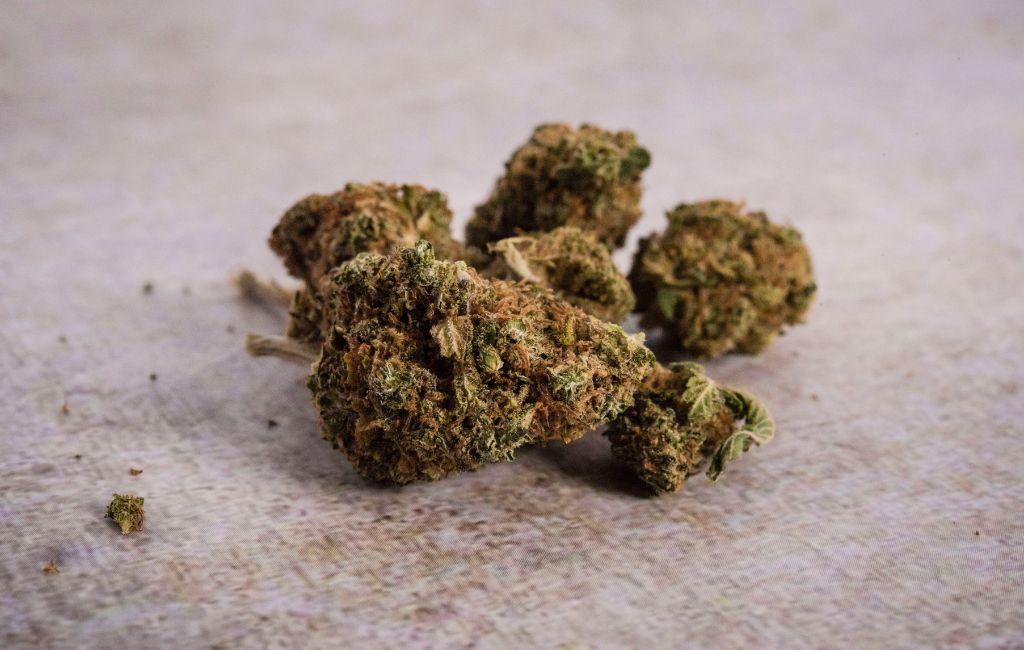THCa Flower: Nature’s Therapeutic Gift
In recent years, the cannabis plant has garnered significant attention for its potential therapeutic benefits. Among the various compounds found in cannabis, THCa (tetrahydrocannabinolic acid) has emerged as a promising candidate for a range of health applications. This article explores the unique properties of THCa flower, its potential benefits, and the scientific evidence supporting its use.
Understanding THCa
THCa is a non-psychoactive cannabinoid found in raw and live cannabis plants. Unlike THC (tetrahydrocannabinol), which is known for its psychoactive effects, THCa does not produce a “high.” This makes it an attractive option for individuals seeking the therapeutic benefits of cannabis without the mind-altering effects.
How THCa Converts to THC
THCa is the precursor to THC. When cannabis is exposed to heat through smoking, vaping, or cooking, a process called decarboxylation occurs. This process converts THCa into THC, which is responsible for the psychoactive effects. Consuming raw cannabis or using low-heat methods preserves THCa, allowing users to benefit from its unique properties.
Potential Health Benefits of THCa
Research into the therapeutic potential of THCa is still in its early stages, but preliminary studies and anecdotal evidence suggest several promising benefits.
Anti-Inflammatory Properties
Inflammation is a common underlying factor in many chronic diseases, including arthritis, inflammatory bowel disease, and multiple sclerosis. THCa has shown potential as an anti-inflammatory agent, which could make it a valuable tool in managing these conditions.
Neuroprotective Effects
Neurodegenerative diseases such as Alzheimer’s and Parkinson’s are characterized by the progressive loss of nerve cells. Some studies suggest that THCa may have neuroprotective properties, potentially slowing the progression of these debilitating conditions.
Anti-Nausea and Appetite Stimulation
THCa may also help alleviate nausea and stimulate appetite, making it beneficial for individuals undergoing chemotherapy or those with eating disorders. This could improve the quality of life for patients struggling with these issues.
Pain Relief
Chronic pain affects millions of people worldwide, often leading to a reduced quality of life. THCa has been reported to have analgesic properties, providing relief for those suffering from persistent pain.
Scientific Evidence and Case Studies
While more research is needed to fully understand the therapeutic potential of THCa, several studies and case reports provide valuable insights.
Study on Anti-Inflammatory Effects
A study published in the journal “Phytomedicine” investigated the anti-inflammatory properties of THCa. The researchers found that THCa significantly reduced inflammation in animal models, suggesting its potential as a treatment for inflammatory conditions.
Case Study: Neuroprotective Effects
In a case study involving a patient with Parkinson’s disease, the use of THCa was associated with a reduction in symptoms such as tremors and muscle rigidity. While this is just one example, it highlights the need for further research into THCa’s neuroprotective properties.
Clinical Trials on Nausea and Appetite Stimulation
Several clinical trials have explored the use of cannabinoids, including THCa, for managing nausea and stimulating appetite in cancer patients. These studies have shown promising results, with many patients experiencing significant improvements in their symptoms.
How to Use THCa Flower
There are various ways to incorporate THCa flower into your wellness routine. Here are some popular methods:
- Juicing: Fresh cannabis leaves and flowers can be juiced to create a nutrient-rich beverage that preserves THCa.
- Raw Consumption: Adding raw cannabis to salads or smoothies is another way to consume THCa without decarboxylation.
- Tinctures and Oils: Low-heat extraction methods can produce THCa-rich tinctures and oils for sublingual use.
- Topicals: THCa-infused creams and balms can be applied directly to the skin for localized relief.
Legal Considerations
The legal status of THCa varies by region. In some areas, THCa is considered a legal compound, while in others, it falls under the same regulations as THC. It’s important to research the laws in your area before purchasing or using THCa products.
Conclusion
THCa flower represents a promising avenue for those seeking the therapeutic benefits of cannabis without the psychoactive effects. With potential applications ranging from anti-inflammatory and neuroprotective effects to pain relief and appetite stimulation, THCa offers a versatile option for improving health and well-being. As research continues to uncover the full extent of its benefits, THCa may become an increasingly valuable tool in the world of natural medicine.
